
EPISODES
Listen to full episodes of OMPS online!
Season One

Genre: ACTION
OMPS, Episode 1
This is our first episode! Welcome to the show, suckers! In this episode, the guys talk about several very different film scores, from James Horner's classic The Rocketeer, to the new Tom Holkenborg music creation, Mad Max: Fury Road. We express our hopes for the show, what we love about film scores, and the soundtrack that started it all for us. Brad steals Kurtis's first choice for a track in "T-Rex Rescue and Finale", Alex and Kurt talk about how film scores have changed to an "industrial" style, and how older works from composers sound much lighter and attractive than they do now. Two scores from different composers for the same franchise are discussed, and Alex talks about the influence of James Horner's classic The Rocketeer.

OMPS, Episode 2
Full Album Review: Jurassic Park
Jurassic Park shares something in common with Brad, Kurtis, and Alex - it is the first film score that really got them all listening. 1993 was a big year for many things. Steven Spielberg was at the top of his game, practical special effects in films would begin to merge with computer special effects (CGI), and John Williams would have a banner year with the scores to Jurassic Park and Schindler's List. While Schindler's List is arguably the more important film score, Jurassic Park seems to be the more universally popular. It's themes have been played over and over again. It still stands as the perfect definition of an adventure score. So sit back and listen to some samples of John Williams' masterwork.
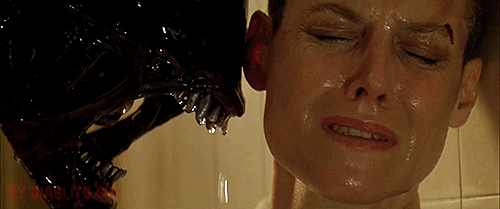
OMPS, Episode 3
Halloween SPECIAL
One of our favorite subjects - horror! How can you feel the cool, fall breeze and not be ready to watch Halloween, or Nightmare on Elm Street, or Alien, or The Omen?! These are the films that really make the hair on our necks stand up! What movie scared you the most when you were a child? Did you poop your pants? We did! Join us for a Halloween special where we discuss what we think is scary music, or just some of the best Halloween music ever composed!
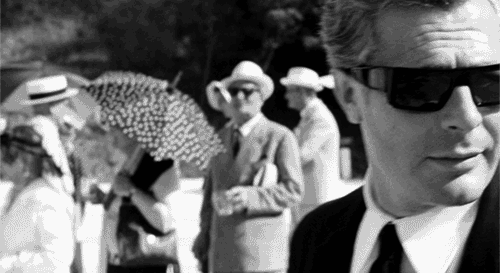
OMPS, Episode 4
Composer to Score Your Life
Who would score your life? Would it be an adventure score? A romantic, comedy, or thriller score? Maybe an electronic score, or a fully orchestral score. This week, the guys pose the question to each other, "If your life were scored by a composer, what would that be like? Who would score it, and are there any running themes throughout?" That question brings a wide range of different scores and composers. Brad, Kurtis, and Alex each pick out several tracks for consideration, and come to the conclusion that for each of them, there is a theme to their picks. Would you have chosen differently?
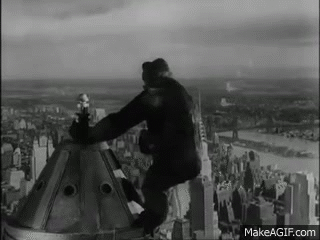
OMPS, Episode 5
Our Beginner's Guide to Film Scores
This episode, we briefly talk about some film score history, some terms used to define film scoring techniques, and some of the film scores that started it all. Don't worry, though! This is not a boring history lesson. We have plenty of audio clips to hear from these incredible scores, and some insight into how composers make music for movies. So, if you are just starting to listen to film scores and are curious about some of the ways they are made, take an hour and a half with us to find out!

OMPS, Episode 6
Genre: Drama
This week, Brad, Kurt and Alex all share three tracks each from scores that represent the drama genre in films. Brad and Kurt both coincidentally choose tracks that come from the same year, while Alex sticks to independent cinema for his choices. There are some very interesting facts and stories that come from this episode. All three of the guys have a deep connection with one composer in this episode, while Kurt hears of a rejected score that he didn't know even existed. Drama in films can have a vast range, from tense emotions, to quiet and contemplative. This is just the beginning of possibilities for this subject, but certainly represents some great choices for listeners. What do you think? Did we leave some out? Are there better first choices?

OMPS, Episode 7
Christmas Episode, Halloween Special Part II
For all you Christmas lovers out there, this is the episode for you! The Christmas episode, Halloween special part two! Kurtis is missing in action this week, but Alex and Brad hold their own as they discuss some of their favorite horror scores! Because who wants to listen to Christmas music, really? However, both the guys do talk about Danny Elfman’s Scrooged, and John Williams’ Home Alone scores. These are definitely Christmas scores, but let’s be honest...horror scores are a lot more fun. If you want Christmas music, go listen to Dean Martin or the Peanuts Holiday specials (which are pretty awesome Vince Guaraldi!). If you are like us, and we hope you are, you will agree that kicking back on the couch, near the fire that is so delightful, with that hot cup of chocolate water, and listening to some scores like Poltergeist, The Frighteners, The Cell, Nightmare on Elm Street 4, and even Unsolved Mysteries is a much better Christmas evening. Merry Christmas everybody! And to all a good (?) night’s sleep…. *Watch out for Krampus!
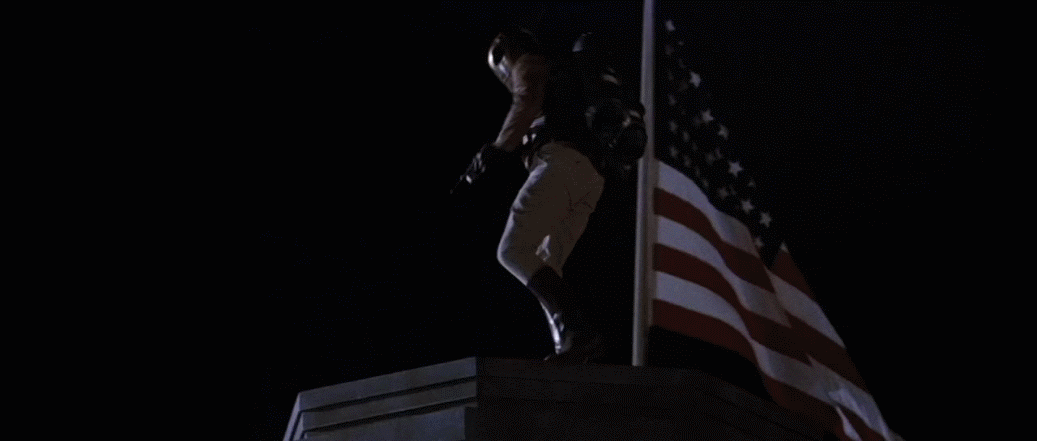
OMPS, Episode 8
James Horner Retrospective: Part I
This week Brad and Alex begin a two-episode retrospective on the late James Horner, who passed away not long ago. Most will agree that he is one of the pioneering voices in the modern film score. But there might be some scores in this episode that you haven’t heard before! Of course, we talk about so many of his films, including Titanic, Aliens, Apollo 13, The Rocketeer, The Land Before Time, and more. James Horner was a force to be reckoned with for so many years in the film scoring industry. We are sad to have lost such a giant too early. This retrospective feels like a small contribution to the legacy of his work.
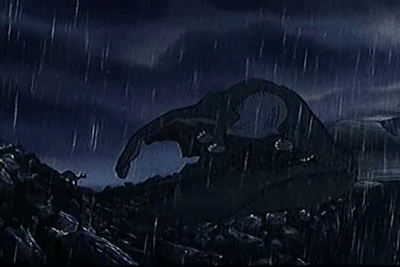
OMPS, Episode 9
James Horner Retrospective: Part II
This week Brad and Alex complete a two-episode retrospective on the late James Horner, who passed away not long ago. Most will agree that he is one of the pioneering voices in the modern film score. But there might be some scores in this episode that you haven’t heard before! Of course, we talk about so many of his films, including Titanic, Aliens, Apollo 13, The Rocketeer, The Land Before Time, and more. James Horner was a force to be reckoned with for so many years in the film scoring industry. We are sad to have lost such a giant too early. This retrospective feels like a small contribution to the legacy of his work.

OMPS, Episode 10
Scoring Session I
Welcome to Episode 10 of OMPS! This is the first episode in a series Brad, Kurt, and Alex will be doing intermittently called Scoring Sessions, where all of the guys riff without any program. So, everything is on the table! Unfortunately, Brad is absent this week, but Kurt and Alex take to riffing about composers and scores they love, including Jerry Goldsmith’s “The Omen” score, Sinoia Caves’ “Beyond the Black Rainbow”, and John Carpenter’s “Christine”. They riff on the merits of Jerry Goldsmith’s suspense and horror writing, editing film trailers and temping music into the footage, and how LL Cool J’s hit song “Deepest, Bluest” on the score album for the film Deep Blue Sea nearly ruined the film! Jerry Goldsmith gets mentioned for scoring Joe Dante’s film “The Burbs”, a classic in suburban comedy, the comic book film “The Shadow”, the erotic thriller “Basic Instinct”, and detective, crime thriller “Chinatown”. Another composer they discuss is Basil Poledouris, who has scored “Starship Troopers”, “Robocop”, and “Conan the Barbarian”. Don’t miss a cue from Henry Jackman’s composition for Kong: Skull Island.
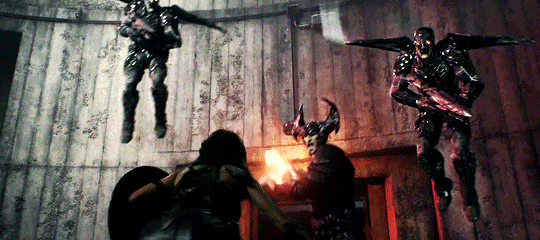
OMPS, Episode 11
Full Album Review: Justice League
On this episode, Alex and Brad cover Danny Elfman’s full album for the recently released Justice League. A highly controversial film, the plot centers around Batman and Wonder Woman building a team to honor the memory of Superman, and to fight a new threat, Steppenwolf and his army. Batman, Wonder Woman, The Flash, Cyborg, and Aquaman all make their grand entrance. With all of these characters in the film, and Danny Elfman’s robust career scoring for super heros, does he bring all the fight and fury we’ve come to expect from him? Will Brad and Alex agree on whether or not this is a worthy follow up to Elfman’s original Batman from 1989? Or does it fall short? There are mixed feelings, to say the least. Whatever the verdict, check out the episode to see whether you agree or not!

OMPS, Episode 12
Video Game Soundtracks
This episode should appeal to fans of films and video games alike! Video games have come a long way since the days of PAC-MAN and DIGDUG. We have transitioned from only having three available instruments for the composer for something like Pole Position, to a full orchestra and choir for something like Lair by John Debney. This change has occurred gradually, and so many people don’t realize just how far we have come from the older days of video games. Sit back, relax, and listen to just how amazing video games can be! Alex has decided opted to let Brad and Kurt choose the tracks, since they are bigger game players. Nonetheless, he has his own memories from playing when he was younger. Listen to how video game soundtracks have transitioned from being electronic scores to fully orchestrated compositions, with themes, motifs, and many hours of effort by their extremely talented composers. Have a comment or suggestion? Leave it at the website, Facebook, or YouTube page! There are certainly video games that we left out. Give us future episode ideas, and thoughts on this one!

OMPS, Episode 13
Genre Romance
Welcome to episode 13 of OMPS! This week Brad and Kurt take on the genre of Romance. While everyone usually thinks about a Julia Roberts, or Meg Ryan rom-com (Romantic Comedy), there are a lot more choices that could count for a specific genre. And romance has many different, very diverse possibilities in film, and certainly film scores. Brad and Kurt start the episode by discussing a big question: should you be required to see the film before you judge or decide whether or not the score is good/bad for the film it is meant for? While the decision they reach might be a little “middle of the road”, it’s an interesting question to pose for listeners. This brings up some really great scores outside of the romance genre. After talking about this, the guys delve into their choices for the genre, which includes music from Batman: Mask of the Phantasm, Lust, Caution, Punch Drunk Love, and Love Me If You Dare, among others. Listen and let us know what romance films we left out! (Even though we know there are more choices than this!) Again, thanks for listening. Don’t be afraid to send us your thoughts and ideas for the show!

OMPS, Episode 14
Main Titles
This week Alex and Brad delve into the plethora of film score Main Titles! What happened to the five minutes before a film started? Did studios decide our attention span was too short? Alex and Brad briefly discuss the loss of the full opening main title, with credits, and of course bring up their favorites from the past. Film score listeners wait to hear that main title, but the norm now is to go with no main title. Why? As Alex says, it is the best parts of the whole score as a suite, and it sets the audience up for what is to come! Alex and Brad also talk about some newer choices that have really made an impression. They compare three different versions of the Batman main title, they talk about the main title to the more recent The Spirit, composed by David Newman. A poorly reviewed film, but an excellent film score. That inevitably leads to David Newman’s score to The Phantom from 1997, a similarly reviewed film and similarly excellent score. Along the same lines as American Beauty, Alex brings up Carter Burwell’s score to the dark comedy Fargo. Brad brings up Howard Shore’s female lead centered Silence of the Lambs, while Alex counters with his score to much more friendly film Big, which Shore also scored. Main titles to films have become scarce recently, don’t you think? No?! Well, let us know what you think!

OMPS, Episode 15
Rejected Film Scores
On this episode, Brad, Kurt, and Alex talk about the mysterious, and intriguing world of film scores that were ultimately rejected. Composers are constantly performing a balancing act for directors and the studios backing the films. Many times, the last person studios, producers, or directors can turn to are composers to fix a film they think is failing. This creates a very difficult problem for composers, as they need time to craft such a specific art. They guys talk about film scores like “The Most Dangerous Game” by Max Steiner, one of the first scores to replace a rejected score in 1932. They also talk about rejected scores like “13th Warrior” by Graeme Revell, “Mission Impossible” by Alan Silvestri, and “Torn Curtain” by Bernard Herrmann. They also talk about why film scores are rejected, what studios think or don’t think about them, and how much pressure there is for a film to be perfect. Sometimes rejected scores are better than the originals, and sometimes there are good reasons for replacing them. Do you have a favorite rejected score? Write in and let us know, because this will not be the last episode about rejected film scores. There are many that deserves the light of day. Thanks for listening!

OMPS, Episode 16
2018 Oscars
Welcome to our SEASON FINALE! We are taking a short hiatus to gather our thoughts and get ready for a huge second season. Today the guys are all back and all talking about the 2018 Oscar nominations. They talk about John Williams’ “The Last Jedi” score and how the original themes overshadow the newer characters’ themes. They discuss how “The Post” might have been the better choice to be nominated. This makes them think about some scores that should have been nominated over this one, like “Blade Runner 2049” and “War for the Planet of the Apes”. Why were these not options for nominations? Alex would have nominated “Game Night” by Cliff Martinez. Brad’s choice for the Oscar for best original score would have been “3 Billboards Outside Ebbing, Missouri” by Carter Burwell. Carter Burwell supports the characters in a simple way, but the guys discuss how that is not such an easy task when you consider what a film score is supposed to accomplish. An excerpt from Alexandre Desplat’s interview about “The Shape of Water” give an example of how the composer approached the material. The guys talk about “The Shape of Water”, which won the Oscar for best picture and best score, and how it was not the strongest choice for this year. Alex’s choice is for best score is “The Phantom Thread” by Jonny Greenwood. Alex and Kurt really think of Thread as an older, 1950’s-style score with a big romantic mood. This was Brad’s least favorite score of the year, though. All in all, the guys all agree that “The Shape of Water” would not have been their choice for the best original score of 2018.
A note on our Season 1 ender episode, don’t get lonely! We’ll be back in no time. Also, don’t forget to check out some of the older episodes you might have forgotten about. Episode one is all about action scores like Die Hard 3: Die Hard with a Vengeance, Batman (1989), and Casino Royale. Episode three is all about horror scores, where you can check out music from Alien 3, Nightmare on Elm Street, and The Twilight Zone. And episode five is all about a beginner’s guide to some film scores, which could give you some great ideas of what to listen to from the past. So, check those episodes out and by the time you finish them, we will be back! Bigger and better than ever! All our love.
BRB
Season Two
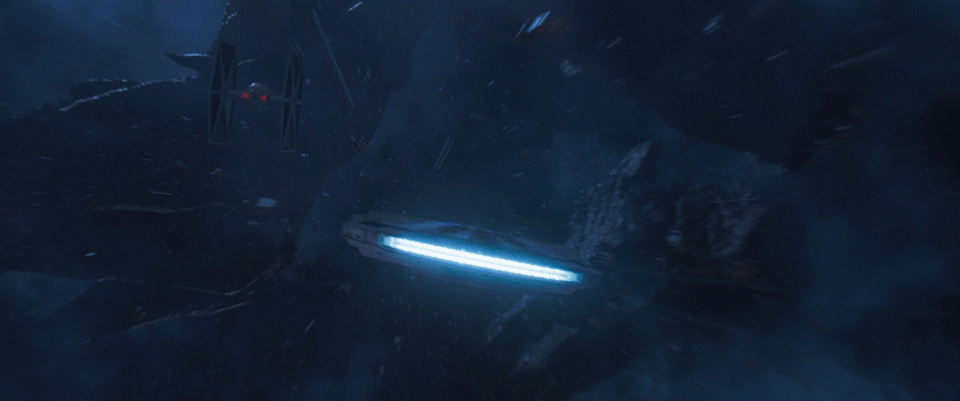
Season 2, Episode 1
Solo, A Star Wars Story
We all want to take this chance to say, “Welcome Back!” to OMPS! Season 2 is finally here and we are excited to start it with John Powell’s score to “Solo, A Star Wars Story”. Before Brad, Kurt, and Alex get into that score they chat about the scores they have been listening to during the break. Kurt is still listening to Marco Beltrami’s “A Quiet Place” and Clint Mansell’s recent “Hotel Artemis”, while Alex has been listening to an older score (an awesome score!) for “Stargate” by David Arnold. Alex also brings up an excellent new score for “Get Out” by Michael Abels. Brad has been diving into some new scores for a while and brings up some interesting choices. One is an excellent score for an independent vampire exploitation movie called “Live Evil” by Austin Wintory (composer of video game soundtracks like Assassin’s Creed and Journey), along with new scores for “In Darkness” by Niall Byrne, and “Tides of Fate” by future-Captain Marvel composer, Pinar Toprak. All this before they start talking about one of the best scores of the year, Solo, A Star Wars Story. While the movie might not have done so well at the box office, it is undeniable that the score should sit as a champion accomplishment in the arena of film scores. Like John Debney’s “Cutthroat Island”, John Powell has thrown every ounce of passion into this process and revealed that he has such a talent for creating memorable work, even when the film might not be successful. We are so glad you are back, and we are very excited to be back making episodes! We will be releasing episodes again every two weeks for Season 2, and promise a much bigger season than the last. Don’t forget to leave a comment and let us know what you think. Thanks for dropping by and enjoy the show!
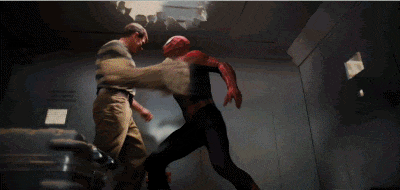
Season 2, Episode 2
Christopher Young, Interview Part I
When independent filmmakers are restricted to a small budget - nothing like the budgets of superheroes and magicians today! - they must find someone whom they can trust to bring the same level of cinematic sound to their final film as any large-scale Hollywood budgeted blockbuster. For years Christopher Young was a force to be reckoned with in this category. He was able to bring an incredibly big, dramatic sound to smaller budgeted films. He enhanced everything he was assigned to. He made these smaller films more believable and important. And, he cemented the Christopher Young sound into Hollywood. Film score fans everywhere will talk to anyone about the Hellraiser film scores, Hard Rain, Wonder Boys, Spiderman 3, Ghost Rider, The Monkey King, Copycat, The Shipping News, Set It Off, and so many more unforgettable film scores made by Christopher Young. Murder in the First still stands as one of the most beautiful scores written for the silver screen. If you have any interest in film music, listening to this episode is a must. Christopher Young was generous enough to give us many stories about composing for movies. So sit back and enjoy one of the greatest film composers talk about his life, his process, and his film scores.
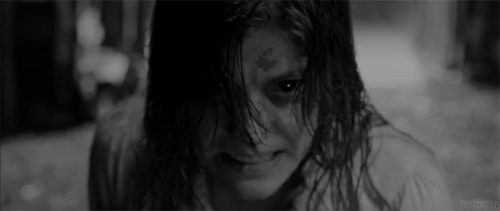
Season 2, Episode 3
Christopher Young, Interview Part II
When independent filmmakers are restricted to a small budget - nothing like the budgets of superheroes and magicians today! - they must find someone whom they can trust to bring the same level of cinematic sound to their final film as any large-scale Hollywood budgeted blockbuster. For years Christopher Young was a force to be reckoned with in this category. He was able to bring an incredibly big, dramatic sound to smaller budgeted films. He enhanced everything he was assigned to. He made these smaller films more believable and important. And, he cemented the Christopher Young sound into Hollywood. Film score fans everywhere will talk to anyone about the Hellraiser film scores, Hard Rain, Wonder Boys, Spiderman 3, Ghost Rider, The Monkey King, Copycat, The Shipping News, Set It Off, and so many more unforgettable film scores made by Christopher Young. Murder in the First still stands as one of the most beautiful scores written for the silver screen. If you have any interest in film music, listening to this episode is a must. Christopher Young was generous enough to give us many stories about composing for movies. So sit back and enjoy one of the greatest film composers talk about his life, his process, and his film scores. This is part two of his interview.

Season 2, Episode 4
Christopher Young Retrospective
After hearing Christopher Young’s incredible stories about composing for the silver screen, the guys take an opportunity to talk about Young’s amazing resume of work. From Hider in the House, to Tales from the Hood, to Priest, and Spiderman 3, Christopher Young’s body of work is an amazing accomplishment. Brad shows his love of Wonder Boys, Ghost Rider, and Priest, Kurt talks about the forgotten merits of Bless the Child, Set It Off, and The Fly II, and Alex talks about his love affair with Spiderman 3 and Copycat. Any way you see it, Christopher Young has branded himself as one of, if not the most, consistent composers working in Hollywood. His work continues to impress and surprise, and OMPS is happy to conclude this portion of their work on recognizing it. We are so grateful to Christopher Young for taking time out of his impossibly busy schedule to give us the prior interviews, and look forward to more in the future. Certainly, there are plenty more scores OMPS couldn’t cover in this episode. Enjoy the show.

Season 2, Episode 5
Dedication to J'Mel R. Davidson
Lights up on J'Mel, sitting center stage. Aloud he muses, "I wonder how long it would take me to build a working time machine." Suddenly, another J'Mel runs onto the stage and yells to him, "Three years!"
- We Make Our Dreams Come True: Shortish Stories by J'Mel Davidson
"Pronounces name THA JUH-miz-UH."
- J'Mel Davidson
All of us lost master comedian, writer, pop culturist, brother, son, and friend recently to cancer, and it has left a giant hole in the lives of those that knew him. J'Mel Davidson inspired many a person in the business of art and media, even if he did not realize it. Anyone who met him were certainly taken aback by how much he knew, how lighting-fast his wit was, and what he was capable of in his life. While most who listen to the show will not know J'Mel, we dedicate this show to him so that you will have just a miniscule idea of who he was. He had an incredible mind, one that always left an indelible impression no matter who he met. He had a big love of movies, like the three of us do. Over the years he shared film scores with us that really meant something to him. And they were always very special, unique, and worth our time. So, we attempt here to give him a righteous send off into the great beyond. We attempt to give you, the audience, a peek inside his mind. To J'Mel, we love and miss you. All of our love, baby. We'll keep the fire.
You can find J'Mel's book "We Make Our Dreams Come True: Shortish Stories" at:
https://www.amazon.com/gp/product/B00M7IUJKY/ref=oh_aui_d_detailpage_o00_?ie=UTF8&psc=1

Season 2, Episode 6
Second Scoring Session
This episode, Brad and Kurt are sans Alex Justinger. Aw! Too bad so sad, suckah'! Since Alex is nowhere around, Brad and Kurt decide to take a walk down memory lane and delve into their film score CD booklets. Now, full disclosure: these CD booklets are the large, 300 disc versions people used to buy at Wal-Mart and Best Buy. Remember when people bought CDs? No?! Well, that's why it is a walk down "memory lane". Now, to give away what Brad and Kurt talked about during this Scoring Session would ruin the fun of listening to the episode. The fun is the surprise because even they didn't know what they would come across. But they do talk about buying film scores blind, before the internet was so flush with information and resources. They also delve into random finds, vacation picks, and some of their favorites. And this is really a walk down memory lane because, even though Brad and Kurt still listen to many of the scores in their CD booklets, some of these have not come up in a long time. So sit back, relax, get some popcorn and a coke, and listen as Brad and Kurt rummage through their collection. Just like that delicious box of chocolates, you never know what the hell you're going to get! Thanks for listening.
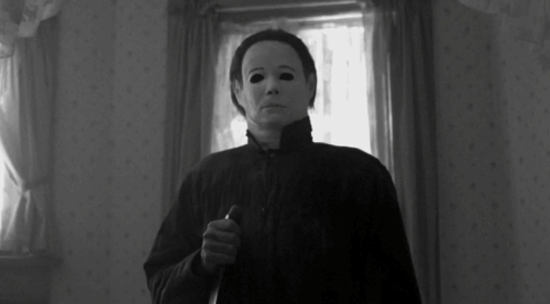
Halloween 2018 Special
Season 2, Episode 7
This week Alex and Brad are missing Kurt, but not missing the scares! It’s the Halloween 2018 OMPS Special! (Since everything a sequel is followed with “2018” now!) Alex seems to take to Halloween with a lot of nefarious glee and brings out the big guns with John Carpenter. Of course, both of them could not talk about Halloween this year without discussing the new Halloween 2018 starring Jamie Lee Curtis and Michael Myers directed by David Gordon Green, written by the Green and Danny McBride, and scored by the maestro of electronic scores himself, John Carpenter. This Halloween episode is not just about that franchise though. Brad brings up the newer film “Tonight She Comes” with a score by Wojciech Golczewski, an electronic score in the vein of “It Follows” by Disasterpiece and “Maniac” by ROB. Also, Brad cannot help but bring up a classic, beefy, all-orchestra “The House on Haunted Hill” by Don Davis. This forgotten score really is a powerhouse for the spooky season. Alex brings back a track from the Unsolved Mysteries series and also bring up the classic John Carpenter score to “The Fog”. So, sit back, grab some popcorn and Halloween candy as Brad and Alex discuss their favorite scary soundtracks.

Season 2, Episode 8
Rolfe Kent Interview, Part I
This week and next week give the listener a view into the mind of Rolfe Kent, composer of films like “Sideways”, “Wedding Crashers”, “Up In the Air”, “About Schmidt”, “Theory of Flight”, “Gun Shy”, “Thank You for Smoking”, “Reign Over Me”, and “Ghosts of Girlfriends Past”. Mr. Kent has made himself an integral team member of directors like Alexander Payne, Jason Bateman, and Jason Reitman since 1989, making his resume one of the most robust in the film scoring world. His work shows a range of musical style that helps give the final step in dark comedies that are much more complex than they seem. At the same time, he is able to fluidly move between traditional rock, jazz, and American classical orchestral arrangements to include all manner of instrumentation from all over the world. Even with all of these techniques, his film scores are always a fantastic listen, moving between comedy, modern romance, classical drama, and inner turmoil. He is a chameleon that perfectly adapts to the film’s needs and gives depth to sometimes funny, sometimes tragic, sometimes frightening yet complicated characters. If you have not taken the time to hear Rolfe Kent’s work outside of his films, you owe it to yourself to do so. Take some time to hear what drives him in his work, and why he loves what he does so much. It certainly shows in the end result. This is part one of Mr. Kent’s interview he was gracious enough to give Alex and OMPS. Stay tuned for part two next week, and our own retrospective for part three. Sit back, relax, get some popcorn, and listen to Original Motion Picture Soundtrack.
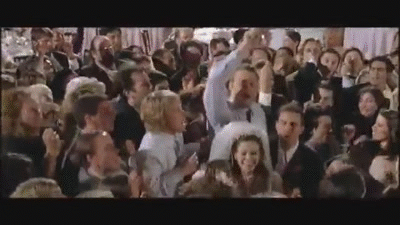
Rolfe Kent Interview, Part II
Season 2, Episode 9
This week we give the listener a second view into the mind of Rolfe Kent, composer of films like “Sideways”, “Wedding Crashers”, “Up In the Air”, “About Schmidt”, “Theory of Flight”, “Gun Shy”, “Thank You for Smoking”, “Reign Over Me”, and “Ghosts of Girlfriends Past”. Mr. Kent has made himself and integral team member of directors like Alexander Payne, Jason Bateman, and Jason Reitman since 1989, making his resume one of the most robust in the film scoring world. His work shows a range of musical style that helps give the final step in dark comedies that are much more complex than they seem. At the same time, he is able to fluidly move between traditional rock, jazz, and American classical, orchestral arrangements to include all manner of instrumentation from all over the world. Even with all of these techniques, his film scores are always a fantastic listen. He is a chameleon that perfectly adapts to the film’s needs and gives depth to funny, yet complicated characters. If you have not taken the time to hear some of Rolfe Kent’s work outside of his films, you owe it to yourself to do so. Take some time to hear what drives him in his work, and why he loves what he does so much. It certainly shows in the end result. This is part two of Mr. Kent’s interview he was gracious enough to give Alex and OMPS. Be sure to check out part one from last week, and stay tuned for our own retrospective for part three. Sit back, relax, get some popcorn, and listen to Original Motion Picture Soundtrack.
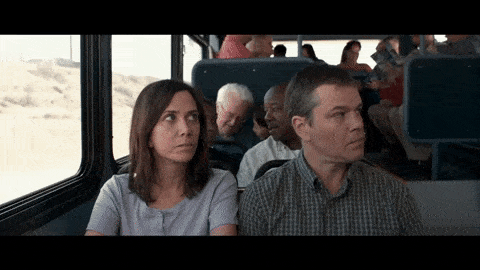
Season 2, Episode 10
Rolfe Kent Retrospective
This week our Rolfe Kent interviews are capped off with a retrospective of his work. While we cannot possibly cover everything he has composed, we hope that shining a light on some of his varied scores will help show just how impressive his works are in film. Some know Mr. Kent by his romantic comedies, others know him by his darker comedies, and others still know him by his adventure scores. Scores like Downsizing, Rock Dog, Dom Hemingway, Bad Words, Labor Day, Young Adult, Charlie St. Cloud, Ghosts of Girlfriends Past, Reign Over Me, Thank You for Smoking, Wedding Crashers, The Matador, Kate and Leopold, Gun Shy, Election, The Slums of Beverly Hills, Citizen Ruth, and so many others. Without his deft touch, such dark comedies like About Schmidt, Sideways, Bad Words, and Election might be too dark or too light, but not balanced. Luckily, Mr. Kent’s talent is in diversity of the orchestra and the moods he creates. Brad, Kurt, and Alex take a look at some of the reasons he is so good at this, and try to highlight some of his best work. Sit back and relax, or drive to the calming, fun sounds of Mr. Rolfe Kent. A special thanks goes out to Mr. Kent and everyone that works for him for allowing us to provide these shows and excellent interviews. This is the reason we do this show, to preserve the history of such great artists. Enjoy.

Mission Impossible Saga, Part One
Season 2, Episode 11
This week marks a Christmas miracle! The first part of our Mission Impossible Saga retrospective. While there is always a lot to say about this great series of films, we try to break down some of our favorite aspects of them. So, for the first episode we take a look at the first three films in the series. The first film started the series with a new character, Tom Cruise’s Ethan Hunt, who then becomes the central figure in these action films and the de facto leader of the IMF, or Impossible Mission Force way back in 1996. The first three films take Ethan Hunt from Prague, to London, Spain, Australia, America, Italy, and finally Shanghai, China to stop threats from Jon Voight as Jim Phelps, Dougray Scott as Sean Ambrose, and Philip Seymour Hoffman as Owen Davian. And, the guys don’t forget about the TV series. Lalo Schifrin’s incredible contribution to the television show in 1966 still stands as a strong influence on each composer who takes up a film in the series. Some of Schifrin’s best themes are talked about here, as well as the influence on some of the suspense cues. While the first and third are excellent action films (and one of De Palma’s best, most commercial efforts for the first), the second seems to be a casualty of its time, directed by the great John Woo. For anyone wondering which film’s score they should start with, or even if you have questions about how they were made, take a listen. This was a difficult mission, but we wanted to go out of the year with a bang! And what better way than with the biggest action star in the world, Tom Cruise. So, Merry Christmas with the first part of the saga, and come back in the new year for the second part! You have five seconds before this message self-destructs...

Season 2, Episode 12
Mission Impossible Saga, Part Two
This is part two of the Mission Impossible Saga, starring Tom Cruise as Ethan Hunt and his team of IMF (Impossible Mission Force) agents. This week we discuss the fourth, fifth, and sixth installments of the action series. Ghost Protocol, directed by Brad Bird (“Iron Giant”, “The Incredibles”, “Tomorrowland”) takes Ethan Hunt to Russia, Dubai, Mumbai, and Seattle because the entire IMF are blamed for the bombing of the Kremlin while investigating an individual known only as "Cobalt" (Michael Nyqvist). He and three other agents are left to stop him from starting a global nuclear war. The film’s score was composed by none other than Michael Giacchino (“Jurassic World”, “The Incredibles”, “Medal of Honor”, “Star Wars: Rogue One”) and shows just how big and fantastic Giacchino’s hand is when scoring a action picture. The fifth in the series, Rogue Nation, is written and directed by Christopher McQuarrie (“The Way of the Gun”, “Jack Reacher”) and has Tom Cruise’s IMF agent Ethan Hunt on the run from the CIA, following the IMF's disbandment as he tries to prove the existence of the Syndicate, a mysterious international terrorist consortium. The film’s score is composed by Joe Kramer (“Way of the Gun”, “The Hitcher 2”, “Jack Reacher”) and blew us away with its scope and size. Kramer is best known for doing smaller, more reserved film scores but really changed pace here, with a huge orchestral score worthy of any Lalo Schifrin music. The sixth in the series, Fallout, raises the stakes when an IMF mission ends badly and the world is faced with dire consequences. As Ethan Hunt takes it upon himself to fulfill his original briefing, the CIA begins to question his loyalty and his motives. For this film, still directed by McQuarrie, Lorne Balfe (“Ghost in the Shell”, “Terminator Genisys”, “Oats Studio: Volume One”) was brought on to provide the biggest score yet. Through his use of orchestral and electronic elements, Balfe has provided the series with the most muscle yet. And, one of the best scores of the year. Listen to Brad, Kurt, and Alex discuss the goods and the bads, as they walk through the second half of this incredible series.

Season 2, Episode 13
Suspiria (1977) and Suspiria (2018)
This episode OMPS takes a look at and compares Suspiria from 1977 and the recent remake from 2018. There is a huge following for the prog-rock band Goblin, and their incredibly influential horror film scores. While the band in its original form is not together as they were for the 1977 film score, the music still stands as a game changer for horror scores then and now. The guys discuss what they think about the score in and outside the film. Does it stand the test of time? After that, they move to the 2018 remake (?) which contains a new score from Radiohead lead singer and musician Thom Yorke. The guys discuss the big differences in the film and the two scores. Was the remake worth making? Was Thom Yorke’s score anything like the original? While the film score does sound similar to many of Thom Yorke’s Radiohead albums and even some of his solo efforts, the score really makes a statement in a different way than the original. Come into the crazy colors of Suspiria - the screams, the deaths, the crazy-ass dancing and witchery! Welcome to two different versions of the same horror story.
*note: you can also listen to Brad incorrectly refer to the song from Smokey and the Bandit as "Eastbound and Down" instead of its correct title "Westbound and Down". Oops!
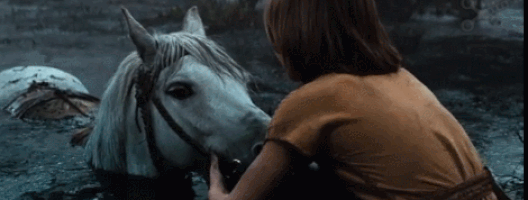
Breathing and The Neverending Story
Season 2, Episode 14
This is a special episode where Brad and Alex discuss the released score for an unreleased film entitled “Breathing”. The film was directed by Anthony Scott Burns, but taken from him at the last minute, re-edited and scored by Mark Korven, and released as “Our House”. One of the casualties was the original score by pop-synth duo Bronwyn Griffin (vocals, songwriter) and Austin Garrick (producer, songwriter, synthesizer, and drums) as the band Electric Youth. They released the score as “Breathing: Original Motion Picture Soundtrack to a Lost Film”. You’ve probably never heard of it, but Alex was kind enough to bring it to my and your attention. It needs to be heard! A completely original film score along the lines of the electronic minimalism that have been so pervasive over the past ten years.
In addition to “Breathing”, Brad decided to delve into another electronic but also older score, “The Neverending Story”. While Brad may not have gotten all the facts just right, the maze of discovering the American release, the German release, AND the bootleg edition was certainly eye-opening. Follow along as Brad and Alex navigate two incredibly unique scores.





